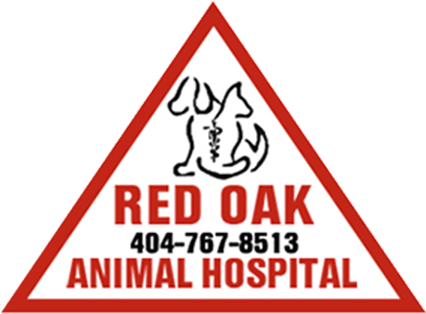Feline Chronic Arthritis Management
Feline Chronic Arthritis Management
Osteoarthritis is a term used to describe chronic degenerative joint disease characterized by inflammation within the joint, thickening of the joint capsule, erosion of joint cartilage, and new bone proliferation. Medical management of osteoarthritis is aimed at reducing pain and increasing mobility. Osteoarthritis is managed, not cured.
- Maintain an ideal body weight: This is the most critical aspect of managing osteoarthritis pain and we are happy to help come up with a thorough diet plan to help achieve this for your pet.
- Exercise Modification: It is very important that arthritic cats be encouraged to exercise regularly as a sedentary lifestyle will worsen stiffness. There are tips for increasing activity on the OSU Indoor Pet Initiative website, and you may consider using a well balanced dry cat food as treats to help encourage them to walk, but not run, around the house. High impact activity such as running and jumping is just as bad as doing nothing at all. Ask for tips to encourage your cat to do regular exercise.
- Environmental Modification: Just as with people who have mobility issues, it’s important to modify the home environment to help your pet. Slippery floors are particularly challenging on older and arthritic cats and we recommend using temporary yoga mats or area rugs to help provide them more traction. Further, provide comfortable beds and hiding spaces low to the ground that are easy to access and set up walkways/temporary stairs to help them onto the couch or a perch so they don’t have to jump. Also consider getting litter boxes with low walls and ensuring food, water and toilets are readily accessible at floor level.
- NSAIDs: Non-steroidal anti-inflammatory medications are potent relievers of pain, but are often considered a last resort in cats because of the potential for side effects. As long as proper precautions are used, specific cat friendly NSAIDs are used in short, infrequent intervals to reduce pain. The majority of NSAIDs, including all human brands, are very dangerous in cats so be careful and only use NSAIDS under the supervision of your veterinarian.
- Pain Medications: Cats that suffer from chronic pain are often prescribed safe options for chronic pain relief such as Gabapentin. This medication is mixed with the food daily and is extremely safe. Some cats can initially be sleepy with Gabapentin but this wears off over time.
- Supplements and alternative therapy.
- Laser: For animals experiencing localized pain, class 4-laser therapy can progressively relieve pain and reduce inflammation. This is typically a series of treatments, every other day until your pet shows signs of improvement. We then reduce the frequency. Often such treatment eliminates the need for pain medication once the swelling is gone.
- Adequan, an injectable form of Chondroprotectant agent (protects cartilage), can be very effective, but also expensive. Adequan is used extralabel in cats, but has been shown to be very safe. Initially, this medication is given twice a week for one month and then weaned down to as little as once a month after the condition stabilizes. We can easily teach you to give these injections at home or our technicians can give the injections for a nominal fee.
- Supplements
are an excellent way to try and reduce the need for true pharmaceuticals over time and to improve your pet’s comfort in both the short and long term. The supplements with the most efficacy include combinations of glucosamine, chondroitin, and methylsulfonylmethane (MSM); New Zealand green-lipped mussel extract; and high doses of concentrated fish oil (EPA and DHA). Further, there is emerging evidence that a full spectrum blend of cannabinoids can be helpful, but these products must be from a reputable manufacturer.
Not all over the counter supplements and nutraceuticals are created equal as they are not FDA regulated and not required to have testing or approval prior to being put on the market. We recommend using products like Dasuquin Advanced (Glucosamine/Chondroitin/MSM), Osteo (Green-lipped mussel extract), Welactin Advanced (concentrated fish oil), and/or Endoblend (full spectrum CBD). These products are made by reputable manufacturers with appropriate clinically proven dosing and have been consistently shown through independent analysis to carry the amount of each ingredient as claimed on the bottle. Other reputable supplements will carry the National Animal Supplement Council (NASC) quality seal as an indicator that they have been independently verified, but may not dose appropriately. Finally, most supplements are labeled for dogs, but are used extralabel in cats. - Diets: There are certain diets that contain glucosamine, chondroitin and omega 3 fatty acids. Some pets greatly benefit from Science Diet J/D which is a prescription diet for pets with degenerative joint disease. In general, supplements and diets can take 4 – 6 weeks to see the effect.
- Acupuncture and chiropractic medicine can be helpful in certain conditions. We can refer you to specialists that work with animals.
Phone:
Address:
4895 Ben Hill Road, College Park, GA 30349
Content, including images, displayed on this website is protected by copyright laws. Downloading, republication, retransmission or reproduction of content on this website is strictly prohibited. Terms of Use
| Privacy Policy
